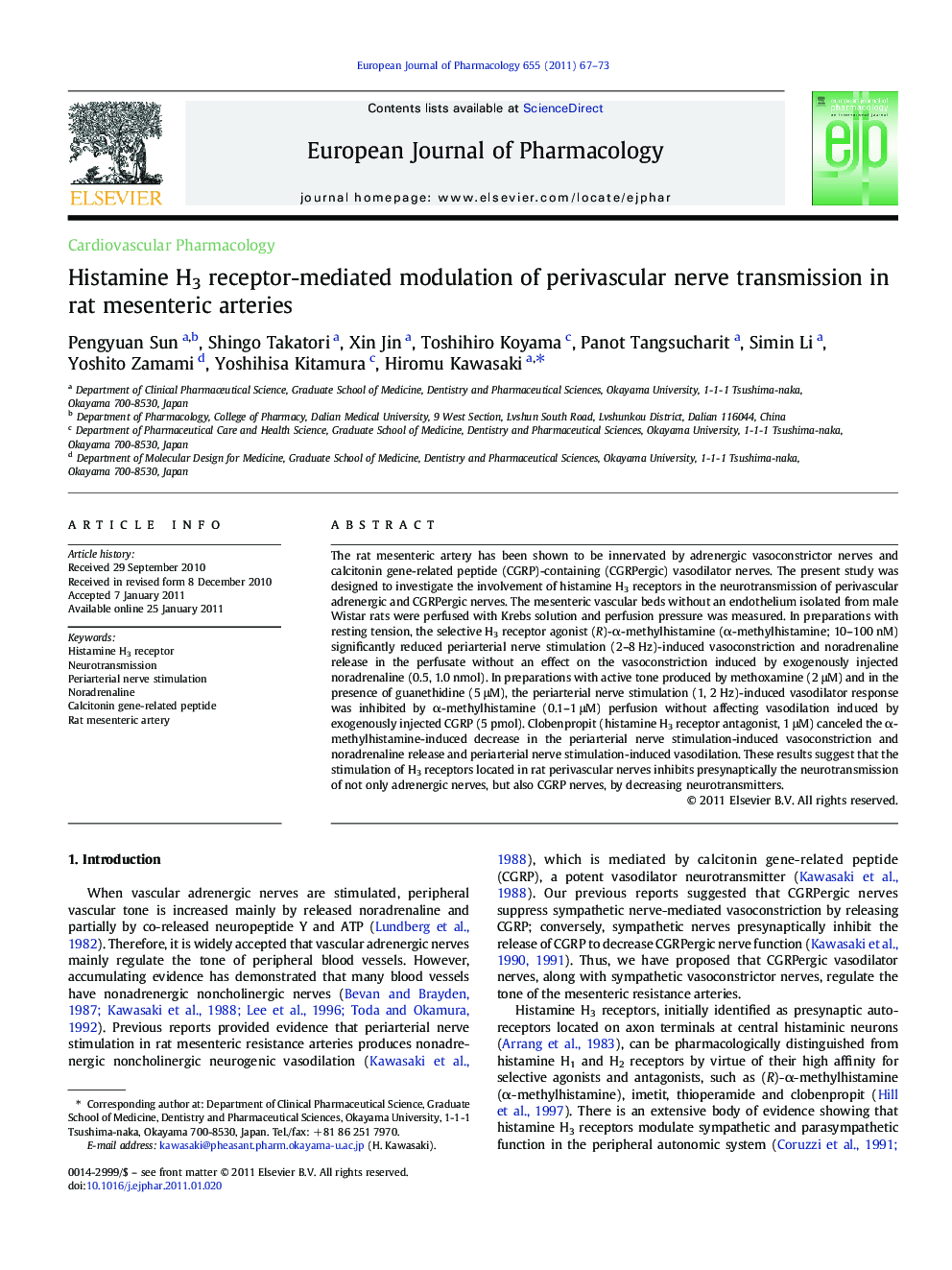| Article ID | Journal | Published Year | Pages | File Type |
|---|---|---|---|---|
| 2532820 | European Journal of Pharmacology | 2011 | 7 Pages |
The rat mesenteric artery has been shown to be innervated by adrenergic vasoconstrictor nerves and calcitonin gene-related peptide (CGRP)-containing (CGRPergic) vasodilator nerves. The present study was designed to investigate the involvement of histamine H3 receptors in the neurotransmission of perivascular adrenergic and CGRPergic nerves. The mesenteric vascular beds without an endothelium isolated from male Wistar rats were perfused with Krebs solution and perfusion pressure was measured. In preparations with resting tension, the selective H3 receptor agonist (R)-α-methylhistamine (α-methylhistamine; 10–100 nM) significantly reduced periarterial nerve stimulation (2–8 Hz)-induced vasoconstriction and noradrenaline release in the perfusate without an effect on the vasoconstriction induced by exogenously injected noradrenaline (0.5, 1.0 nmol). In preparations with active tone produced by methoxamine (2 μM) and in the presence of guanethidine (5 μM), the periarterial nerve stimulation (1, 2 Hz)-induced vasodilator response was inhibited by α-methylhistamine (0.1–1 μM) perfusion without affecting vasodilation induced by exogenously injected CGRP (5 pmol). Clobenpropit (histamine H3 receptor antagonist, 1 μM) canceled the α-methylhistamine-induced decrease in the periarterial nerve stimulation-induced vasoconstriction and noradrenaline release and periarterial nerve stimulation-induced vasodilation. These results suggest that the stimulation of H3 receptors located in rat perivascular nerves inhibits presynaptically the neurotransmission of not only adrenergic nerves, but also CGRP nerves, by decreasing neurotransmitters.
